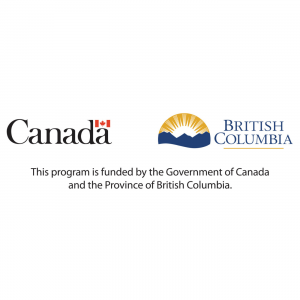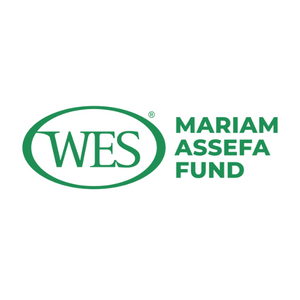With a genuine love for her community, Mayra Gonzalez stands as a dedicated advocate for mental health, embodying her commitment to making a difference. When she was a law student, she co-hosted a radio program that invited professors and professionals to explore social issues. The days when they had psychologists on the air particularly inspired her — seeing the problems from a psychology lens underlined the mental health impacts of conflict arising out of legal issues. Recalling her time practicing family, civil, and criminal law, she says, “Even when people were getting a positive resolution from the judge, they were still unhappy. My clients were experiencing depression, anxiety, and the effects of trauma. I noticed that once they started having that mental health and emotional support, they were actually shifting the way that they were seeing things. It was even changing the way that they wanted to go through their case. Witnessing these internal changes made me very interested in how meaningful it is to support people’s well-being so that they can make better decisions for their lives.”
After working as a lawyer for a few years and reflecting — what felt like constantly — on the misalignment between her own values and the realities of working within a corrupt legal system, she decided that she wanted to advocate more about mental health. It had become very clear that her work in the world should focus on “learning more about the psychological and emotional transformations people go through.” She switched gears and started a psychology degree. “All those internal processes of change that foster wellbeing are critical,” she says. “That proactive piece felt really important to me. If we are taking care of ourselves, then the decisions that we can make will be different.”
Two years into her studies, at the age of 29, Mayra immigrated to Canada to be with her husband. Seeking to continue her education, she began investigating the pathway to becoming a clinical psychologist. “It was a long path that wasn’t available to me,” she explains. “I was experiencing different barriers as an immigrant. I don’t have the privilege of affording all those years and having the money and everything you need to get into that process. And then I learned about counselling psychology, and I saw it as a pathway to work in the career I was passionate about.”
The prerequisites to becoming a registered counsellor took years to complete. “It’s been quite the process for me just to build one thing at a time, to get my permanent residency, to register, land a spot, and finalise the pre-requisite courses, then apply for — and get — the acceptance to the master’s program,” she says. “When I came here, I could communicate, but my English wasn’t strong. I started studying some English courses in the cheapest school I could find. I tried to get volunteer positions, but they rejected me because of my language barrier. I would approach nonprofits who said they supported immigrants and say, ‘Hey, I have this professional goal. I want to become a counsellor.’ They would say, ‘We don’t have academic English courses, or we don’t have those supports, or, but you’re an immigrant and it will be hard.’” She started studying for the TOEFL exam anyway and chipped away at some online, self-paced introductory courses related to counselling through Athabasca University.
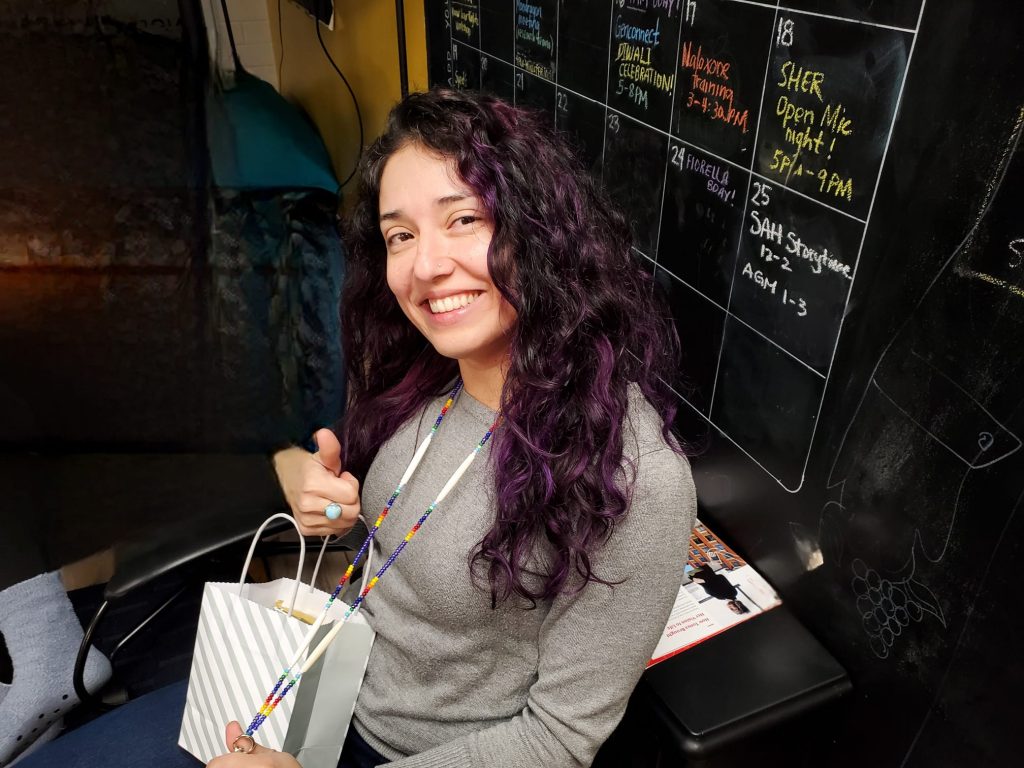
Aside from the language and academic barriers she faced, Mayra is the first to acknowledge that what she’s doing is not a path that any married woman can take, sharing, “Most of the time there are goals — or pressures — to have a family. I experienced a lot of stigma, not only as an immigrant, but because I was a 28-year-old woman.” At one point, she and her husband met with a financial advisor to see if they might qualify for a student loan. They were working on a budget and wanted to understand the realities of carrying that debt. “He was like, oh, but you’re a woman, so you like to get a lot of makeup. You want to buy a lot of clothing, then you’re going to have a family, you’re going to have kids,” she recalls. She paused the conversation, shared that she was feeling triggered by his comments, and asked him to stop. “He replied, ‘Oh. You have a lot of problems,’” she says. Thinking back, Mayra reflects, “What I experienced were harmful practices that reinforced the oppression cisgender women coming to Canada after the age of 25 often experience. All these assumptions about who I was and what was important to me reflected stereotypes that uphold these dominant narratives.”
Feeling isolated and alone, a glimmer of light appeared when Mayra was accepted into the YWCA’s Focus@Work program, which, she says, “changed my life because I learned that I deserve to follow my calling and the career I envision for myself. I started believing that I could follow my aspirations and shed the oppressive narrative of being an immigrant woman and having kids without the possibility to grow professionally.” Not long after, she said yes to her first job in Canada at Mountain Equipment Co-op (now Mountain Equipment Company). Shortly after that, she passed her IELTS exam and was able to start taking some courses towards the Guidance Studies Diploma at UBC, a stepping stone to the university’s master’s in counselling program. Once in the Guidance Studies Diploma program, she began volunteering at the Chimo Community Services Crisis Line, and she stayed there for five years.
In 2019, Mayra started working as a part-time youth counsellor in a recovery program. In this role, though she felt like she was making an impact, she often experienced hostility, microaggressions, and blatant racism from her clients, especially when working alone. When the pandemic began, Mayra felt overwhelmed by how life had changed, and working in this kind of environment became unsustainable. She made the decision to leave her job, recalling, “There were many times that I experienced racism, and I didn’t really feel the support from my team. So, I felt triggered constantly. My manager felt bad about it and apologised, but the answer was, ‘Well, they are young. What else can you do?’” This experience planted a seed for Mayra about how helpers like her, who identify as BIPOC, negotiate everyday racism in white-normed institutions. She also experienced racialised behaviours from callers in distress at the Crisis Line who requested to talk to someone else after hearing her accent. She began to recognise racist practices from a dominant script that dictates oppressive identities for BIPOC individuals.
While continuing with her studies and her volunteer position at the Crisis Line, Mayra saw a posting for another part-time position, an assistant coordinator role open to student applicants at the UBC AMS (Alma Mater Society), a nonprofit that advocates for students at the university. Though her life was already jam-packed, accepting the role was worth the extra stretch. “I knew the benefits of being in the space, [the skills I would develop, and the experience I would gain would make the low pay worth it in the end],” she says. Part of what she found “a privilege and a blessing” about the work was that the team was merging two service offerings: providing education and outreach about substance use and providing peer support for those in need. The other benefit was the team itself; all three staff members on the project were students, and all three identified as BIPOC folks: “We got to actually have these conversations about what being a BIPOC student means, and how hard and challenging it is, and the barriers that you might experience.” These conversations allowed the team to deeply explore the possibilities for change within internal processes. “We would talk about these dynamics where we were in meetings or when we’re at school, in classes, and having discussions,” she says. “There’s this power dynamic that unconsciously happens, dominant scripts where when there’s a time for someone to talk, let’s say in a class or a discussion, someone who identifies as being from the dominant group will speak first, and folks who identify as BIPOC like me and these other students, they would just wait, or they would just be silent.” Noticing these patterns when they were thinking about merging the two services was critical in how Mayra’s team approached the work. “We heard a lot of feedback from students, from people from other nonprofits inside UBC, that it can be so intimidating as a student to ask for help from someone who might have a position of power. So, we actually were taking that into account. And we found that because we were a BIPOC team, somehow, we were bringing that diversity piece in automatically, and it was a welcoming piece for students to feel more comfortable, no matter where they were coming from.” Looking back, working with the UBC AMS was the best job Mayra has had so far, “because I realised the positive impact of launching a new service tackling the students’ needs. It was a meaningful experience that allowed me to do something valuable for a population with unique struggles. I also learned about the specific challenges that international students face in silence.”
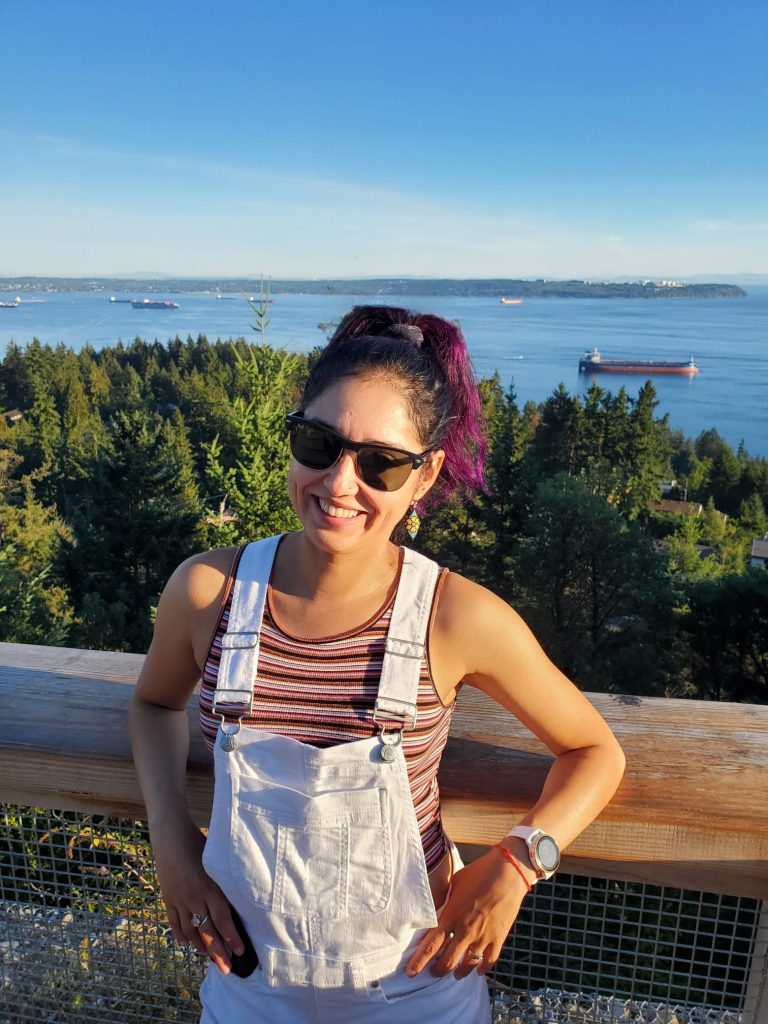
When the UBC AMS contract closed, Mayra started applying for work with other nonprofits. Having learned about the disadvantages faced by international students, she decided to apply for a position with another nonprofit, one that supported immigrants and refugees by providing employment information workshops, resume and cover letter reviews, and other settlement services. In this role, Mayra attended a session hosted by AMSSA (Affiliation of Multicultural Societies and Service Agencies of BC) that was open to all community workers from nonprofits. The session just happened to be led by a RADIUS Lab facilitator who was also a registered counsellor. “I was attracted to her way of explaining conflict resolution, how conscious she was to create safety for the group, and how social justice-oriented the session was,” Mayra says. “I reached out to her, and I remember feeling nervous because it was my first networking attempt — I just wanted to learn more about areas in counselling that you can specialise in.” She gives a little laugh. “It was my birthday on the day we connected, so I was happy because it was my birthday gift just to connect with someone and have a conversation that I found meaningful. We explored our curiosities, and I asked her about the work that she does, and I ended up sharing that I would like to do something for the community, but I haven’t found a space. She asked me if I had ever heard of RADIUS.”
Mayra was inspired by what she read about RADIUS and the Migrant Systems Change Leadership program (MSCL, previously Beyond Borders), but wasn’t sure if the time was right for her to apply. Mayra sees herself as a connector, and as she explored the RADIUS website, she began to share the program with others. In the meantime, she took another series of workshops about anti-oppressive practices for community workers in nonprofits. After the anti-oppression workshops, Mayra noticed the reality of the harm caused by approaching clients from a relationship of having power over them by being the expert. Additionally, she noticed a hierarchy of power at the institutional level, where staff are overworked and underpaid. BIPOC folks become invisible within systemic oppression, their voices are unheard, and they are undervalued. “I was advocating about having more training sessions about anti-oppression, gender equality practices, having more opportunities to train the staff to know about stress response and trauma and how that might look for people and clients because we were getting a lot of people in distress and staff didn’t know what to do,” she says. She felt that it was crucial to implement more training opportunities for staff to learn and understand how trauma and the stress response manifest and present in people so that they are better equipped to manage these delicate situations and provide responses and solutions that are safe and informed. She joined the Diversity and Inclusion committee inside the nonprofit to advocate for change more broadly. Sadly, Mayra found that navigating the hierarchical systems in an environment fraught with injustice was not the way to implement the change that she was hoping for. This, fortunately, encouraged her to continue down her path of social justice and advocacy for the change that she would like to see, but to do so in environments that are prepared to meet her with a collaborative and egalitarian approach.
Feeling exhausted and unable to unsee all the oppression that was happening, it became difficult for Mayra to advocate for clients. She started to feel like a squeaky wheel. “Sometimes my manager would listen to me, and we could create this connection to better serve our clients, and it was nice, that dialogue and bringing awareness about social justice,” she says. “Most of the international students that I served through my work came from programs offered through colleges that have limited resources. I advocated to bring guest speakers from more privileged spaces in to share more resources and learning opportunities that this group wouldn’t typically have access to. I fostered dialogues about education equity, and how we can bridge the gap and better support underserved populations like international students with potential partnerships.” Often, though, the oppression weighed on her: “I was triggered by all these layers of oppression that I had been exposed to, and it just kept happening in my workplace.” When she decided to leave, she received positive feedback from many of her clients, validating that she was on the right track towards living in her values. “Even though I didn’t have a job to move on to, I could see I did something good while I was there,” she says.
Mayra’s decision to walk away from her job prompted her to tend to her mental health. She took the time to go into her grief and focus on her own healing: “[I cried a lot. I was so burned out. I worked on my recovery and convinced myself that it was a good decision. I found some support from a counsellor who let me pay what I could.]” This self-care created an opening for her to re-explore and later apply for the Migrant Systems Change Leadership Certificate program (MSCL) at RADIUS. In August 2022, she stepped into the circle as a member of the cohort, seeking to bring a project to life that would educate service workers and support the mental health of immigrants and newcomers and help them be successful in Canada. “I just remember sitting with everyone and sharing our struggles,” she says. “I could tell I was in survival mode. I could feel that other participants were fighting within themselves and entering this space in survival mode as well. I remember looking at everyone and saying, ‘Can we just pause and acknowledge that we all made it? Despite all those things that are so hurtful, we made it here, to this supportive space that is nurturing and really cares about our journeys.’” She could feel people in the room exhale around her. It was more validation that she was not alone and was on the right path.
Over the course of MSCL, Mayra began to feel more comfortable, more herself, thanks to the facilitators and the other team members, the space, and the conversations. “Overall, that is what RADIUS has given me, that sense of, okay, this is the reality here, that sometimes it’s so uncomfortable, but there are options,” she says. “We can navigate with this, and we can find possibilities within this resistance, within this tension. There’s something that is positive instead of reinforcing hate about the system and between groups.”
This feeling of confidence in her ability to navigate oppressive systems and to choose possibility is something Mayra wants to bring into her project. “I want to bring safety, the ability to have those hard conversations, but at the same time, bring positive experiences that highlight that BIPOC international students can choose. We can decide to perform a resilient story instead of a survival one. We work in all these environments that seem so nurturing and caring and grounded and values-centred. They have all this information about what the system looks like, and yet we are all learning as we go. We’re learning ways to navigate this reality, learning ways to stay grounded ourselves, learning ways to create a space that is positive. The reality is when you realise that something — a person or a situation — was racist, and it happened against you, it is so easy to be triggered, and living in a state of being triggered takes its toll on our mental health. I want to bring more dialogue, more connection, and more compassion into the work we do and how we live.”
In early 2023, Mayra participated in RADIUS’ Trampoline program. “I’m not going to lie,” Mayra says, “sometimes I noticed that when I was doing some research and seeing all these difficult situations that people have been going through, I thought, this is so horrible, and I went into survival mode myself. So, I learned that I need to support my nervous system when I’m doing that research.” The conversations with Trampoline co-creators helped her to humanise things and bring pieces of compassion into those difficult dialogues of racism. Welcoming someone “as they are” is something Mayra says the RADIUS team does very well. “They are positive role models. They bring compassion in the way they present themselves; they seem more grounded, and they have a presence that matters. Even when I might be nervous or my stress response is activated, just having that presence of someone with a calm nervous system will help me feel calmer.” She noticed herself becoming more open to organic conversations about the reality of social issues and more able to be curious about the experiences of others.
Mayra’s project idea requires that she be a registered counsellor to allow her to responsibly hold a space of exploration and healing. As she works towards this certification, she is putting pieces together one at a time to complement the knowledge she is developing through her studies. As a BIPOC student counsellor navigating a system, she became curious about the dilemmas that arise when racialised BIPOC individuals like her become helpers in a profession rooted in whiteness. How is it possible to hold the values of social justice and care for the clients when one is experiencing racism from those same clients or institutions? There are manifestations of systemic racism within institutions and outside organisations. Through Mayra’s lived experiences, she recognises the relevance of offering a safe space to pause and explore different experiences of self: “To connect with others and share unpleasant racist experiences to avoid the internalisation of oppression and instead foster compassion for building another path that leads to resilient and thriving stories. Safe spaces to explore experiences of gender inequalities and racialised behaviours can enhance hope and, most importantly, the awareness of the possibility of building systems of change, internally within the identity and outside, regarding becoming an agent of change.”
In fact, developing this project while she is a student has its benefits. It allows her to show up curiously with registered counsellors and other professionals and ask “what if” questions to support her thinking around her approach. This is where Trampoline has been very useful, helping her to think about — and rethink — her idea. With Trampoline’s encouragement, Mayra explored her idea further, deepening her connections with people. While doing this work, she came across a Narrative Training that, by externalising the dominant discourses around social issues, helped her better understand those issues as inherently political acts. This helped her make more sense of her lived experiences and understand the impact of racial practices on BIPOC individuals. Mayra encountered several racialised behaviours in her work and volunteering experiences that made her wonder where BIPOC women students go to process painful experiences throughout her own journey. She expresses, “I have felt so isolated, and I know how important community and connection is. So, I think, what if we brought a group of international BIPOC women together? We could build a sense of welcoming, have consistent sessions, and create a space for real sharing.”
To her knowledge, a group like this, specifically for BIPOC international students in higher education who also identify as women, doesn’t exist within the counselling realm in Vancouver yet. There is a professor at the University of Victoria who is running a group counselling program for Canadian Asian students and working with a storytelling approach. Narrative therapy, Mayra explains, “is a psychotherapy approach that focuses on the stories people create about their lives. This framework sees the relation between the person and the social and political circumstances. So, the person’s problem doesn’t come from the internal psyche. It’s more about what’s happening on the outside. It explores the practices outside that are recruiting you in the experience of oppression that could lead on developing impostor syndrome. I like this approach because it’s political in that way — it helps clients from a therapeutic stance to reflect on the values outside and explore the values that they really want to honour. Like, what’s another story that you want to build?” This psychotherapy relies on creating counter-stories that align more with the values of the individuals, and it feels like an approach that’s closer to what Mayra has in mind. She has connected with this professor, and he has offered his support when she has questions or concerns. By being in connection with him, she has already gained insight into how to talk about the work so it feels authentic for folks who need it while also garnering the systemic support required to fund the program: “Thinking about how I’m going to bring that idea in a way that invites compassionate dialogue for something that can be really hard to acknowledge in the room.” Mayra recalls how challenging it was to navigate racialised behaviours in silence, as it was difficult to even talk about it with close friends due to the heaviness of emotions it triggered, such as feeling shamed. During the Trampoline program, she received positive feedback regarding the relevance of the space for BIPOC women students and racial discourse conversations, and some folks even offered to be participants in the pilot project.
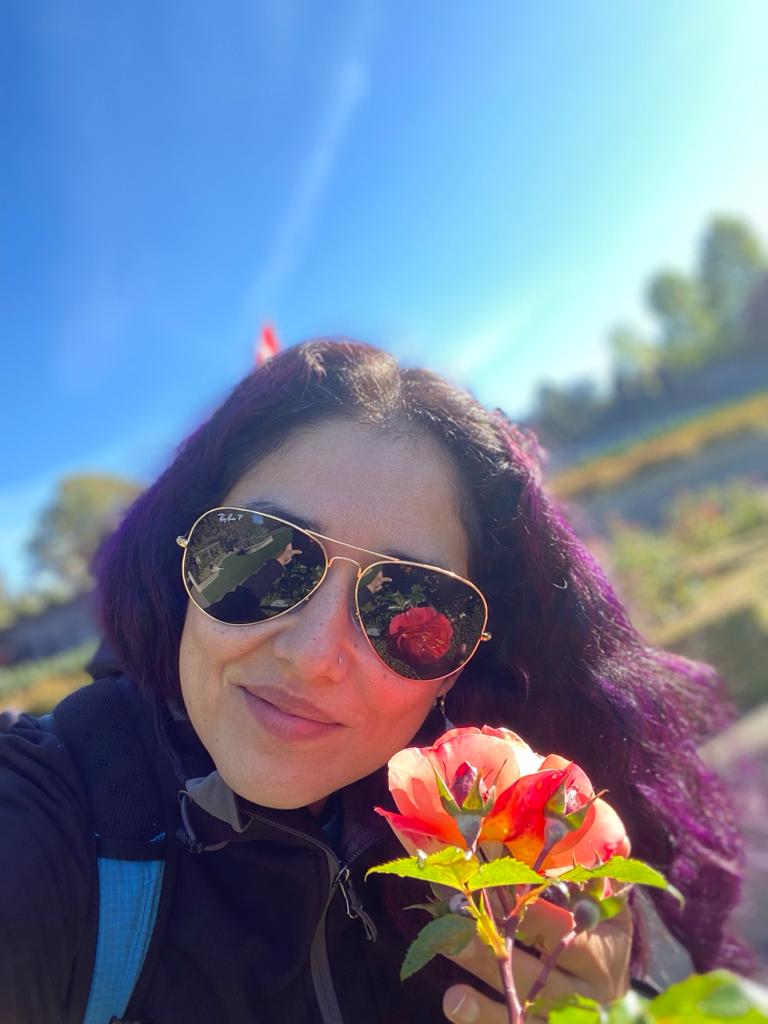
Now that she is participating in RADIUS’ BUILD program, Mayra has a much more solid idea of her project, and the program is helping her refine her idea and bring it to life. She is thinking, for example, a lot about the name for the group, what values underpin the project, and what the benefits of participation could be. For now, she’s calling it Resilient Identity and Peak Performance: Overcoming Imposter Phenomenon, because she thinks it reflects the potential for resilient change within one’s identity and academic performance narratives, which are negatively impacted when BIPOC students encounter racialised discourses from institutions and workplaces. Just having those conversations has helped her remind herself why she’s so passionate about doing this work and has given her more motivation to find ways to navigate the system. “RADIUS has been helping me find ways to navigate the system. I think the ways they are doing it are working, and I need to find out what works for me, now that I’m building my own understanding of the systemic layers of oppression, in which there are dominant scripts and values in place. Having these kinds of conversations about liberatory ideas of change with the program team helps me to have different perspectives on not taking things personally. I’m still integrating all of this for myself. I’m still holding crucial questions around the language that I’m going to use to create compassionate dialogues within the system when I’m applying for funding, or even just trying to find a place to run the program within an institution. Now, because of my experience with RADIUS, I am aware of those languages, and I’m just figuring out how to make them my own.”
Eight years after coming to Canada, Mayra began her master’s in counselling at CityU in September 2023. “I have learned over my life that I’m not just a doer,” she says. “I don’t just support immigrants in nonprofits for employment or help them to feel safe and knowledgeable about the services that exist. I am not just my accomplishments or my career; I am so many things. I’m this human being that also enjoys doing yoga, connecting with nature and people. And I’m coming at this life from a social location as an immigrant, cisgender woman, who also identifies as a Mexican.” Overall, Mayra feels like she’s in the flow of her life’s work. Her journey of instigating transformative change bears a striking resemblance to the art of scuba diving: she recognises the importance of preparation and gradual immersion. As she eloquently puts it, “Just as there’s a specific breath you take while submerging to adapt to the increasing pressure, I now have the confidence to delve deeper. I’m no longer gripped by fear; I believe that it’s all going to be just fine.” This analogy beautifully encapsulates her evolving confidence and her readiness for the challenges ahead.
The Refugee Livelihood Lab is part of a growing movement supporting deep shifts in the systems which govern our lives towards equity, dignity, and sustainability for all people and the planet.
Thank you to our funders Ministry of Social Development and Poverty Reduction, and WES Mariam Assefa Fund (MAF).
